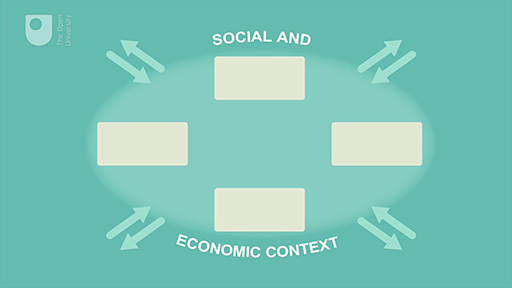1.3 Building your financial planning model
Martin introduces you to the financial planning model – a process with which you’ll become very familiar as you progress through the course and develop your financial capability.

Transcript
Financial capability involves being able to work out a financial plan for achieving a goal, given the constraints that you face. Constraints include things like income and existing savings, personal circumstances such as having to care for children or elderly relatives, and emotional factors such as how you feel about taking risks. For example, if your goal is to reduce debt worries, then financial capability involves better debt management. If you decide to consolidate debts into one package and then pay them all off systematically, some of these packages cost less than others (other things being equal). If there are debt problems, it’s better to seek advice from professional bodies like the government’s Money Advice Service (MAS), or from Citizens Advice or StepChange, rather than going to a ‘loan shark’ who charges extremely high rates of interest. Alternatively, if you’re saving to buy a flat, some savings schemes offer a better return than others (other things being equal), and all of them are likely to be better than stuffing cash under the proverbial mattress.
Seeking out well-informed advice and choosing better products, given constraints and goals, would be evidence of greater financial capability.
